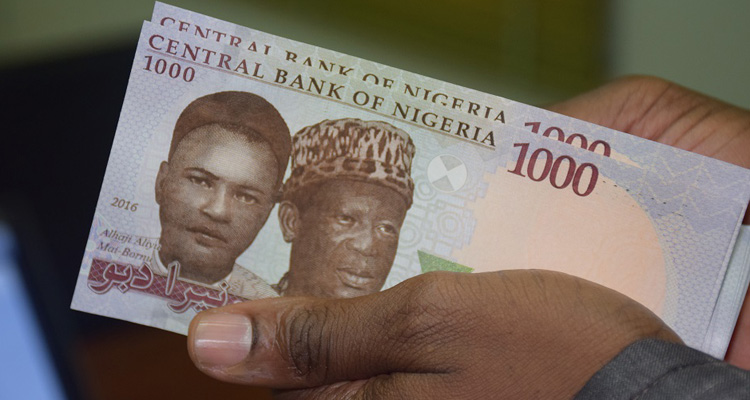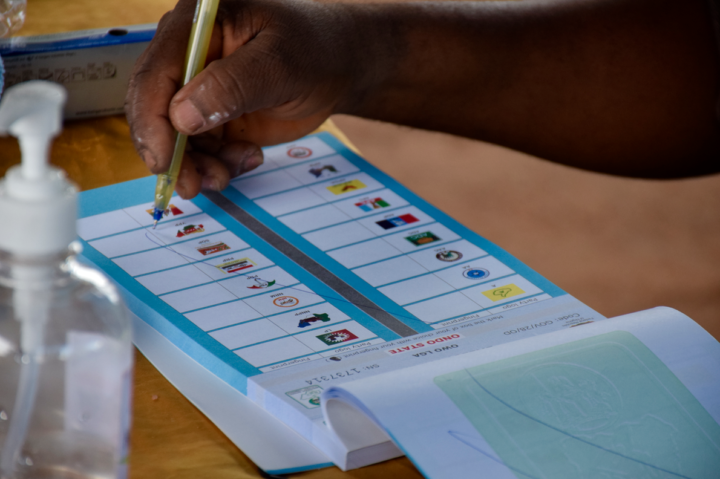If you borrow, you better pay, or else!
I’ve been following the debate about the plethora of online lenders who take delight in harassing Nigerians, and the appeal for government to cage them. I believe though that there is a need to carefully examine the issue, within the broader context of our sociopsychological makeup and what we intend to achieve with the policy of financial inclusion and financial market development in Nigeria. Many issues are thus thrown up, which need to be unpacked.
In the first place, there is the extant policy of continuous financial innovation, which has led to the massive spread of financial technology providers (Fintechs) all over the world, and in particular, in Nigeria. This category of financial institutions has brought in innovation in lending, savings, payment systems, and other subsectors of the financial industry. And they have also brought in new risks, including the fact that they are difficult to track and understand by regulators. Online lenders belong in this category, and from what I have read so far about the malpractices of these lenders in Nigeria, it looks like many of them now exist that are not even properly registered or known to the regulators. That’s one.
Secondly, and for me, more importantly, there is this issue with the ‘financialisation’ of the Nigerian economy as against its industrialisation, even as the window of necessary industrialisation is almost about to be closed on Africa by advocates of global warming who believe that the world should fully cut over to renewables which cannot carry heavy industries and for which African nations have no capacity or capabilities. In other words, these people want us to fully abandon the fossil fuel that we have and thereby foreclose our opportunity of ever industrialising. And why not? We are not using these resources to power our own industries, are we? We seem very comfortable depending on others around the world. And we seem perfectly okay with building new banks, licensing Fintechs, and pursuing elusive financial inclusion in the very presence of a debilitating economic exclusion of the majority of our people, who will be much better served by industrialisation and urgent, inclusive, and organic economic development, from the ground up. Nigeria needs to concentrate on value creation, value-addition, and economic inclusion beyond our current efforts.
Advertisement
Go to our dying state capitals, what you see are a few snazzy bank branches standing out of the debris; testimony to the policy disconnect. Businesses are dying, but banks – and now Fintechs – are declaring billions in profits. And apart from the state capitals, the rest of the country is abandoned, such that not even the banks can dare to go there. Not only is there too little business, but they make an easy target to deadly criminals.
What are the other issues that need to be unpacked in this saga, aside from the ‘financialisation’ misadventures of Nigeria?
Some people have called for banks to extend their services to retail customers like artisans, small traders in the local markets, and hustling ‘entrepreneurs’ to be able to get loans. But everybody knows that our banks don’t have time for these N10,000 or N20,000 lending about which our people are complaining. This is because our banks are not built to service such loans. As things stand, our banks have ceded the possibilities in that sector to the Fintechs; these online lenders. I suspect that some of them get the liquidity to drive their business from the banks and why not?
Advertisement
From the article dated December 28, 2021, in The Punch, written by Nike Popoola and titled ‘Loan sharks devise underhand tactics, inflict pains on cash-strapped Nigerian borrowers’, some of the loans attract as high as 50% – 60% interest per month. This is actually an incredibly good business for the online lenders, even if only half of their customers repay the loans. If the commercial banks provide the funding to the Fintechs, both segments of the market can actually post good profits, but it is the Fintechs that will have to do the ‘agbero’ work of chasing customers to repay, hence the underhand and strong-arm tactics. The small loans in question are uncollaterised by the way, so we must be fair to the loan providers. What is their recourse? Or are they to be helping the government plug the poverty gap with private funds? Our commercial banks cannot cope with the N10,000 crowd and have by now successfully kept them at bay with technology (ATMs and online/phone banking). They have also laid off most of their staff and those remaining are way too sophisticated to come down from their ivory towers to interact with poor folks. But all of us signed up for this and hailed the innovations as they were brought on, without considering the overall effect on society. So, game on!
The second issue to consider is the question of what limits the online lenders should go to retrieve their loans. What tactics are acceptable and which ones are not? Anyone who reads the article referenced above will both laugh and cry at some of the tactics that have been adopted. On a few occasions, if a borrower missed payment by one day, or even over a weekend, the automated system of the online lender sends out sometimes very damaging, or very hilarious messages to all the contacts on the borrower’s phone, even after the borrower has made good. Most of the messages (and I have received some about people I know or don’t know) call out the borrower as lacking in integrity and warn their contacts not to trust them. Others drag the contacts along as being co-liable for the repayment or for further impugnment of their reputation in the public space. The idea is to get the borrower – and their contact – to panic and pay up. Some Nigerians seem to care about their reputation, while others couldn’t be bothered, according to the report. Some simply switched off or threw their SIM card away.
Some enlightened borrowers say the right thing to do is report defaulters to credit bureaus, but online lenders probably think that that is a long journey as many Nigerians don’t care that much about their credit score. Yet a few others say the lenders should not harass defaulting borrowers but simply activate the new CBN global standing instruction (GSI). That’s valid. But then we are confronted with the stark reality that millions of Nigerians have lost hope that things will ever get better for them. These are people who have hardly had anyone pay money into their accounts and can afford to go with only cash for the rest of their lives if need be. GSI is useless for such people. The sanctions that society metes to people who have bad credit abroad are also not yet present here. Many homeless people abroad are out on the streets because they messed up their credit. It looks unlikely that Nigerians will be ready for such any time soon. Perhaps credit bureaus will get more powerful in time.
Also, it looks like Nigerians just obtain loans, and sign the small print without looking, or without caring in the eagerness to get their hands on the money, because the idea of the apps accessing their contacts is simply to embarrass them if they fail to repay their loans. Data protection is not in the dictionary of some of these lenders. Some Nigerians said they wanted to sue the online lenders for embarrassing them, only to find that they have no offices where they could be served with court papers. Well, that is why they are online lenders. Some of them have also been alleged to tamper with their apps to ensure borrowers are unable to pay on the due date in order to slam them with punitive fees. This is a possibility especially for the unregistered ones, and a major cause for concern. But in these days where many so-called ‘investment’ companies daily dupe Nigerians of billions it is hard not to say this is the society we created, actively, all of us – a desperate society where no standards are obeyed; an increasingly dog-eat-dog scenario. We have greedy people falling for larger-than-life ponzis everywhere on one hand, and greedy lenders taking advantage of borrowers on the other. Perfect storm.
Advertisement
The third issue is sociopsychological. Some of the instances show that Nigerians are either very desperate, or reckless. People take loans from five or six of these online lenders, spend the money and then begin to whine when the lenders show up. Then they begin to complain about how Nigeria is bad? Or about the regulator not protecting them? As I stated above, in the nations where we are importing this credit culture from, they are very ruthless against people who default on credit. In those places, powerful people are behind the banks, insurance, and large retail firms – and indeed everything is on credit including your car, home accessories, house, insurance, and everything in between. Over time, the governments there have built a system that protects the businesses and whips everyone else into line. They don’t want mass defaults creating systemic economic crises. Nigerians may not yet have the required discipline. The question then becomes whether we should try and build that discipline or not. Running to the government to intervene when one has been reckless is untenable. Many Nigerians also suffer from all sorts of addiction that makes it difficult for them to borrow and repay as and when due. A lot of our boys are deep into sports betting, which is just simple gambling. Some of these borrowings go into that. Some are into alcohol and other drugs which takes such money. Others are under the burden of social and cultural expectations which make them live beyond their means. In a few instances, some borrowed in the hope of offsetting with their salaries, but many companies, and even governments, now default regularly and for long periods on monthly salary payments.
Let’s hear from some of the affected Nigerians and try to gauge what the issues are:
Benjamin Azuka, who had borrowed from many online banks, said, “Three firms have sent messages to my contacts. Please I need all the motivational speech I can get right now! My mother is sad. I have gone viral.”
Dele Gabriel, said, “I wonder how to survive this threat. How are people owing up to six or 10 app firms survive the threats, phone calls, and text messages from the loan agents? Please help me. I am owing five loan app firms which will be due on December 16, 17, 18, and 19, 2021, and I do not have money now to pay. I have been living in fear and panic. I cannot eat, I cannot sleep. It is even affecting my work in the office. One of the loan agents called me yesterday and was threatening me. So I had to use Truecaller to block all phone numbers that are not in my contacts to avoid high blood pressure. Honestly, if God helps me and I finally pay all the loans, I will never borrow money from them again. They can make someone kill himself.”
Musa said, “It is only God that saved my life, if not I would have been a dead person by now. The very day my loan is about to get overdue, I knew very well that I was in trouble because a lot of people complained about them. My loan got overdue on October 4 and I did not have any kobo to pay the firm because my employer failed to pay me my salary that month; that was when I started receiving calls upon calls. The pressure became so difficult for me to handle and I couldn’t concentrate on my work again. I hardly sleep at night because of their threat. There is a day it crossed my mind to commit suicide but I thank God I didn’t do it”.
Eleanor said, “Because I did not want to become worried over loan problems, I deleted my WhatsApp and switched off my mobile phone. Even if my contacts get any message, they can’t call me.”
Confidence Awachie, a jobseeker who owes an online lender N15,000, said, “I am tired of this loan app firm. I haven’t got money to eat and they keep calling and sending messages to my contacts.”
The above responses are from a report by THE PUNCH. Take note of how a number of the responders now hope on God himself to repay their loans. One person is angry because his ‘enemies’ – especially from among his wife’s family – now know he is a serial debtor and he can imagine them having a good laugh behind his back. Hilarious. Just like Nollywood. Many are multiple borrowers who probably borrowed just to survive or paper over some of our constant Nigerian crises. I think that the government cannot shirk its responsibility or ignore the desperate poverty that plagues many Nigerians, who are now victims of these cutthroat, faceless financiers.
Advertisement
Again, we must point out the need to build this economy organically, not throw the people in the fangs of ruthless shylocks. Chances are that many people in this business are laundering money too. When the focus is all about money, all sorts of players show up and there is no better way to launder money than to somehow lend to folks who payback. Even if 70% of the funds come back, that is 70% cleaned up. Nigeria remains famous for its corruption and shadiness. If this is the case, borrowers should know that they are dealing with Mafia-type organisations who stop at nothing to collect what is owed.
I think there is a need to meet in the middle in order to organically and slowly build a manageable credit culture. I personally would not like to live in a society where everyone lives on credit for everything and where it is even considered almost a crime when you don’t borrow (like it is in some developed nations – Germany being a significant exception). As we go after these faceless online lenders and also review and refine the operating standards of the registered ones, we need to let it be known that people must borrow responsibly. It is always easier to borrow than to repay. Maybe people should be asked not to borrow what they cannot repay. Culturally some people just believe they should get their hands on any money. Yorubas have a colloquial saying “Owo olowo ati owo eni, olorun ma fi kan won wa”, meaning that God should just provide one cash to spend, one way or another.
Advertisement
I don’t believe that the cultural undertones are being properly analysed and configured into the operation and regulation of this market. What about our spending habits? Are the amounts we spend trying to show we are culturally capable justifiable? Those birthdays and weddings and burials etc? What about those Aso-ebis, the owambes, and the ‘spraying’? And those demands from people in the village and extended families, that are way beyond our legitimate earnings, which account do we write them into? The white people whose economic systems everyone else including ourselves have to conform with do not have such problems.
Indeed the decades of grinding poverty that some of our people have seen is enough to render many insane and in search of money to spend by any means. Perhaps constant conferences are required for this, to be organised by industry regulators – Central Bank of Nigeria, Nigeria Deposit Insurance Corporation, Federal Competition and Consumer Protection Commission – bringing lenders and borrowers together to agree on the ways forward and standard practices that protect both parties.
Advertisement
For in truth, many have also benefited from this advent of online lenders. Our commercial banks never treated their very small customers like they existed beyond being account numbers on their system, to be debited with all sorts of charges at month-end. And then online lenders showed up. Many emergencies have been helped by these apps. We should perhaps not throw away the baby with the bathwater.
Advertisement
Views expressed by contributors are strictly personal and not of TheCable.
Add a comment







